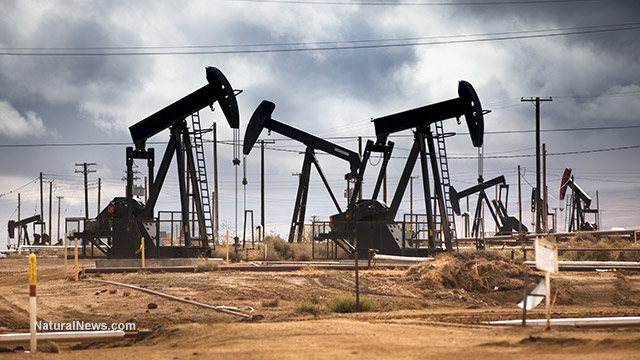Canada’s legacy Liberal Prime Minister Justin Trudeau’s approval of two controversial pipeline projects earlier this week has angered allies in the environmentalist cohort and in the indigenous community.
“Environmental groups began condemning the decision as Mr. Trudeau was making his announcement late Tuesday afternoon, but the prime minister said that the pipeline expansion did not contradict his pledges to improve environmental protection and mitigate climate change,” the New York Times explained.
Said one activist, “Trudeau should be ashamed today using middle class workers as cover to wreak havoc on our water, climate and property rights.”
“With this announcement, Prime Minister Trudeau has broken his climate commitments, broken his commitments to Indigenous rights, and has declared war on B.C.,” added a Greenpeace official.
The pipeline decisions made news in part because Trudeau is a politician who has generally bought into the narrative advanced by the worldwide man-made climate change or climate disruption rebrand, which previously operated under the “consensus” theories of global cooling or global warming.
As Natural News recently revealed, “Whether they call it anthropogenic warming, global warming or climate change – just follow the money. What it’s really about is control of all energy on earth, while bilking billions from lucrative carbon credit schemes.”
Greens disappointed in green light for pipelines
On Tuesday, Trudeau approved the Trans Mountain Pipeline expansion, a project that will carry oil from Alberta to British Columbia and then on to Asia, and Line 3, that will transport oil from Alberta to Wisconsin.
Green activists vow to sue in court to block both projects; once the lawyers get involved, it could be years, if ever, before construction actually gets underway.
To be built by Kinder Morgan, the 715-mile Trans Mountain Pipeline alone would reportedly increase output to 890,000 barrels a day, tripling existing capacity. Enbridge’s 1030-mile Line 3 is designed to double the current 380,000 per day volume. Each of these projects has a price tag of about $6 billion.
“The decision we took today is the one that is in the best interests of Canada. It is a major win for Canadian workers, for Canadian families and the Canadian economy, now and into the future, Trudeau said in his announcement.
Trudeau rejected a third pipeline project known as the Northern Gateway, a separate pipeline from Alberta to British Columbia.
The Liberals under Trudeau ousted Conservative Prime Minster Stephen Harper in the October 2015 general election, ending Harper’s nine-year rule. Pierre Trudeau, Justin’s father, served as the country’s prime minister from from April 20, 1968, to June 4, 1979, and again from March 3, 1980, to June 30, 1984.
“The pipeline decisions point to a careful balancing act on energy by the Trudeau government, which has announced plans to levy a nationwide carbon tax that could make it a leader in the global battle against climate change and has pledged to phase out coal-fired power,” the Wall Street Journal detailed.
Former apolitical entrepreneur Kevin O’Leary, one of the stars of ABC’s Shark Tank (and its Canadian precursor Dragons’ Den) is considering a run for the wide-open position of Conservative Party leader as a possible stepping-stone to seek the prime minister job himself. O’Leary, a.k.a. Mr. Wonderful, has blasted Trudeau’s tax-and-spend and business-unfriendly policies. He has expressed the belief that the incumbent will serve just one term, along with arguing that Canada needs leaders with actual business acumen and experience. The next election is scheduled for October 2019, although a parliamentary system also provides for early elections if circumstances dictate.
O’Leary has characterized Justin Trudeau as a “giant meat grinder of taxpayers’ money” and no match for master negotiator Donald Trump, the U.S. president-elect, when it comes to trade policy.
Sources:


